If you’re considering chiropractic care in the UK, understanding the depth and breadth of a chiropractor’s education is crucial. Gone are the days of unregulated practice; today, becoming a chiropractor in the UK demands a significant academic commitment, culminating in registration with the General Chiropractic Council (GCC). Registration with GCC is non-negotiable factor in choosing the right Chiropractor, which can be confusing for potential patients when they’re in pain and need the right help.
Dr Chris Chippendale, Senior Chiropractor and Clinical Director in Sevenoaks Chiropractic Clinic explains more of what to look for when Choosing the right Chiropractor
The Journey to Becoming a UK Chiropractor: A Demanding Education
Becoming a qualified chiropractor in the UK isn’t a quick fix or a short course. It’s a rigorous academic and clinical journey, typically lasting four to five years, leading to a Master of Chiropractic (MChiro) degree.
These programmes are highly comprehensive, designed to equip students with a deep understanding of the human body and the skills to effectively diagnose, treat, and manage musculoskeletal conditions.
Here’s a glimpse into what a typical UK chiropractic degree entails:
- Clinical Anatomy: A meticulous study of the human body’s structure, with a particular emphasis on the musculoskeletal and nervous systems. This includes detailed dissection and hands-on learning.
- Physiology & Pathology: Understanding how the body’s systems function, from cellular level to organ systems, how they interact and disease processes.
- Biomechanics: The mechanics of human movement, focusing on how forces affect the body and how these relate to injury and dysfunction.
- Neurophysiology: A thorough exploration of the nervous system, given its central role in pain and musculoskeletal function.
- Clinical Sciences and Diagnosis: As students progress, the focus shifts to the application of scientific knowledge in a clinical setting. This includes:
- Orthopaedics and Neurology: Specialised study of musculoskeletal conditions and neurological disorders that may present in a chiropractic setting.
- Radiology and Imaging: Learning to interpret X-rays, MRI scans, and other diagnostic imaging to aid in accurate diagnosis.
- Diagnostic Skills: Developing comprehensive patient assessment techniques, including history taking, physical examination, and special orthopaedic and neurological tests.
- Chiropractic Principles and Techniques: This is where the art and science of chiropractic come together. Students learn:
- Manual Therapy Techniques: Extensive practical training in a variety of chiropractic adjustments and other manual therapies designed to restore joint function and reduce pain.
- Patient Management: Developing skills in creating individualised treatment plans, providing exercise and lifestyle advice, and managing patient expectations.
- Differential Diagnosis: The critical skill of distinguishing between conditions with similar symptoms, ensuring patients receive the most appropriate care.
- Professionalism, Ethics, and Research: A significant component of the degree is dedicated to instilling professional conduct, ethical considerations, and an evidence-based approach to practice. Students engage in research projects and learn about legal and ethical responsibilities.
- Extensive Clinical Practice: A cornerstone of UK chiropractic education is supervised clinical training. In their final years, students gain invaluable hands-on experience treating real patients in university-affiliated clinics under the direct supervision of experienced chiropractors. This ensures they are proficient and confident before entering independent practice.
Entry requirements for these demanding courses typically include strong A-levels, often with a science subject, and a demonstrated commitment to the healthcare profession.
The Non-Negotiable: Why You MUST See a GCC-Registered Chiropractor
The rigorous education outlined above is only one part of the puzzle. Once a chiropractor graduates, they must register with the General Chiropractic Council (GCC) to legally practise in the UK and use the protected title “chiropractor.” This isn’t merely a formality; it’s the bedrock of patient protection and professional standards in the UK.
Here’s why seeing a GCC-registered chiropractor is paramount:
- Legal and Qualified Practice: It is a criminal offence for anyone in the UK to call themselves a “chiropractor” or imply they are one without being registered with the GCC. When you see a GCC-registered chiropractor, you can be absolutely certain they have met the required educational standards and are legally permitted to practise.
- Assured Standards of Education and Training: The GCC is responsible for approving and monitoring all chiropractic degree programmes in the UK. This ensures that every registered chiropractor has undergone a comprehensive, quality-assured education that meets the highest benchmarks.
- Adherence to a Strict Code of Conduct and Ethics: GCC-registered chiropractors are bound by a robust Code of Practice and Standards of Proficiency. This code dictates their professional behaviour, ethical obligations (like patient confidentiality and informed consent), and clinical standards. If these standards are not met, the GCC has the power to investigate and take disciplinary action.
- Commitment to Continuing Professional Development (CPD): To maintain their registration, chiropractors must regularly engage in Continuing Professional Development. This means they are constantly updating their knowledge and skills, staying abreast of the latest research, techniques, and best practices in the field. This commitment to lifelong learning ensures you receive care that is current and evidence-informed.
- Accountability and Patient Safeguards: Should you have any concerns or complaints about the care you receive from a GCC-registered chiropractor, you have a formal avenue to address them through the GCC’s complaints and fitness to practise procedures. This provides a vital layer of accountability and consumer protection.
- Public Register: The GCC maintains a public register of all qualified chiropractors. You can easily check if a practitioner is registered by visiting the GCC website (www.gcc-uk.org). This transparency empowers you to make informed choices about your healthcare.
In essence, the General Chiropractic Council acts as your assurance. It signifies that the chiropractor you are seeing is not only highly educated and clinically competent but also operates within a regulated framework that prioritises your safety and well-being.
When it comes to your health, never compromise. Always seek care from a chiropractor who proudly displays their GCC registration – it’s your guarantee of professional, safe, and effective chiropractic care in the UK.





